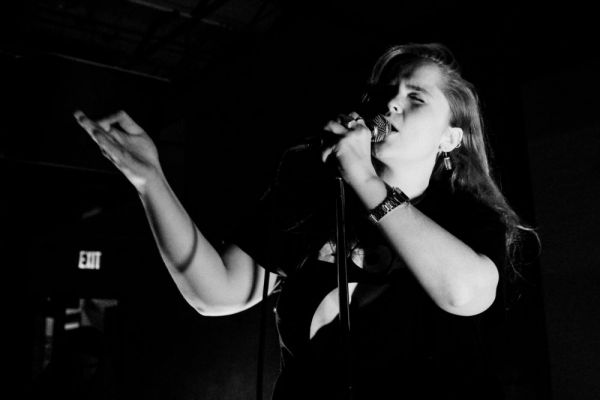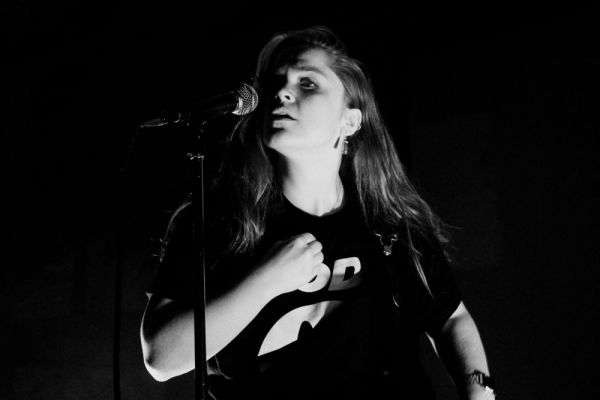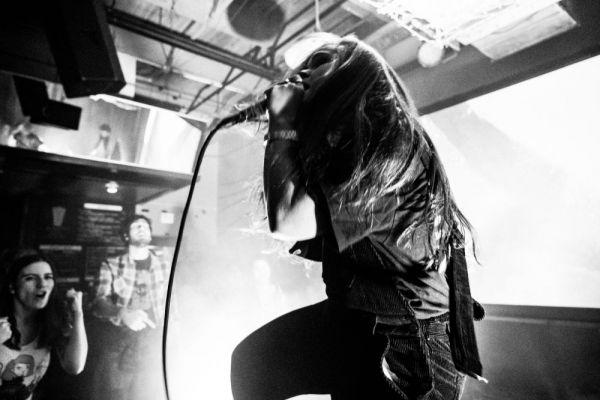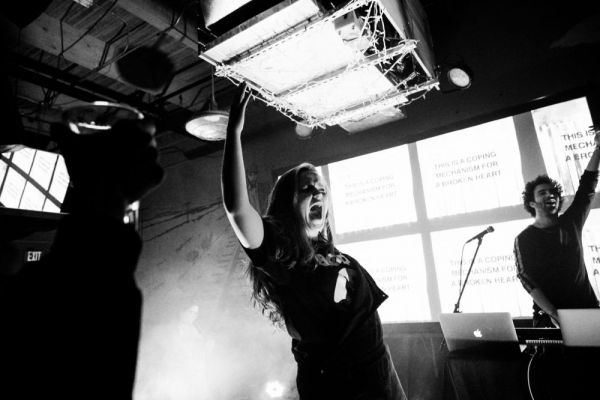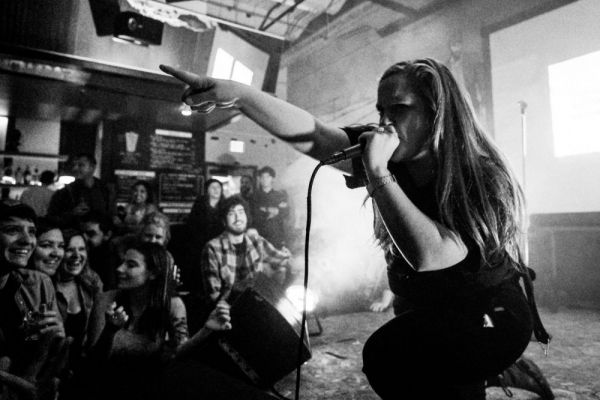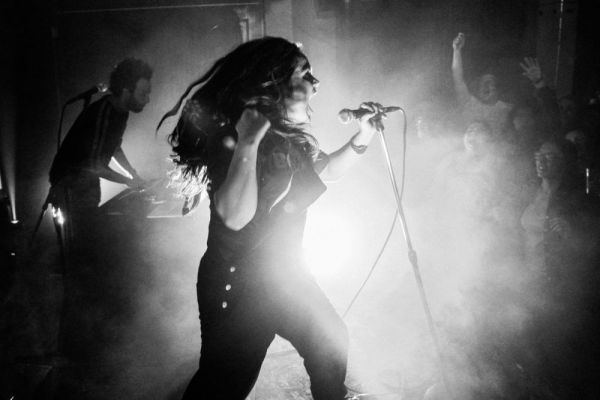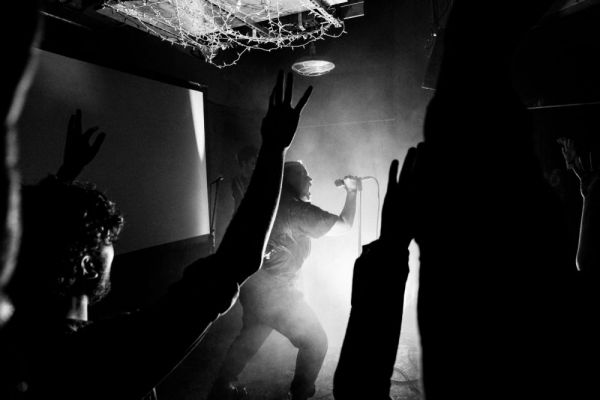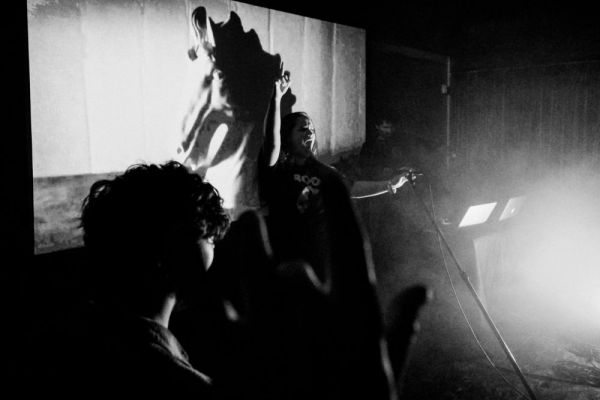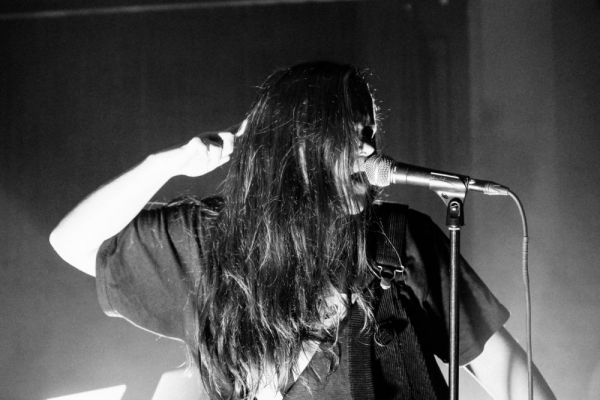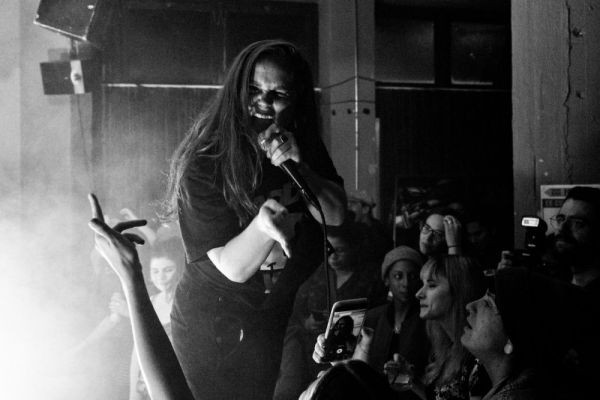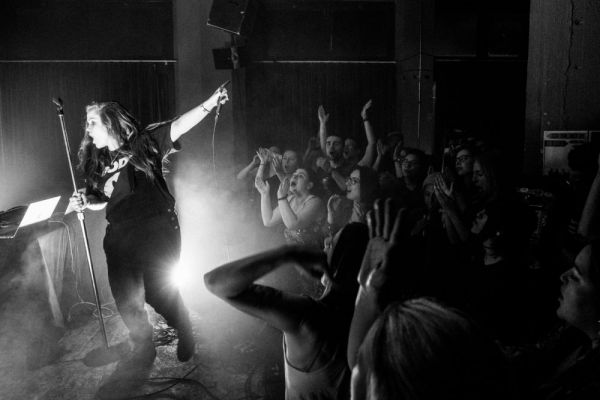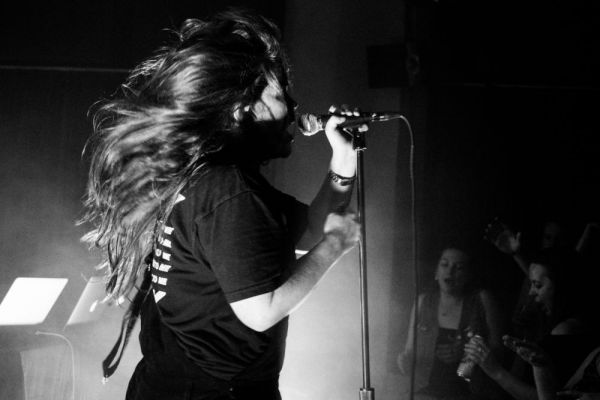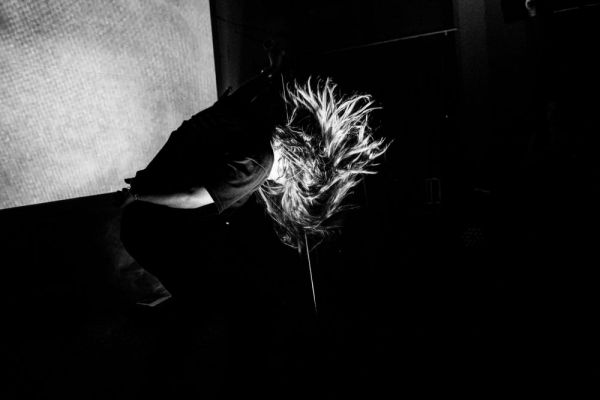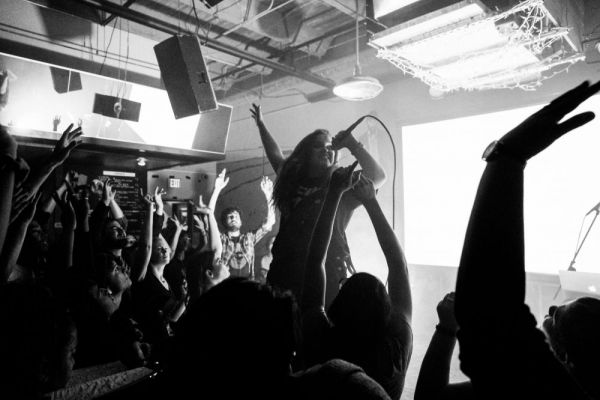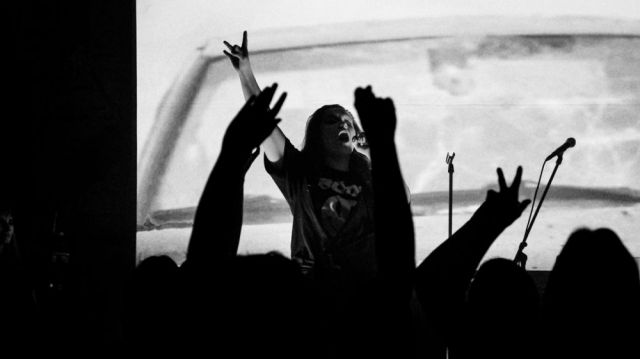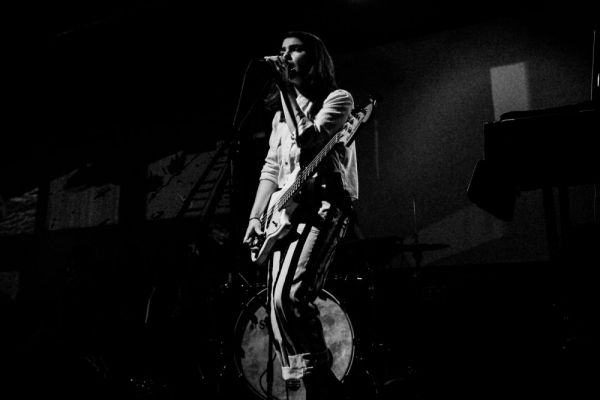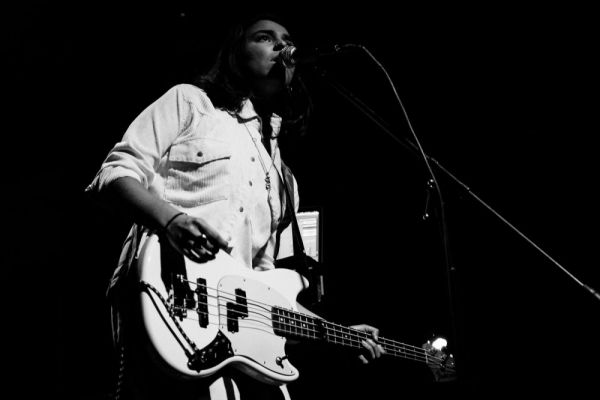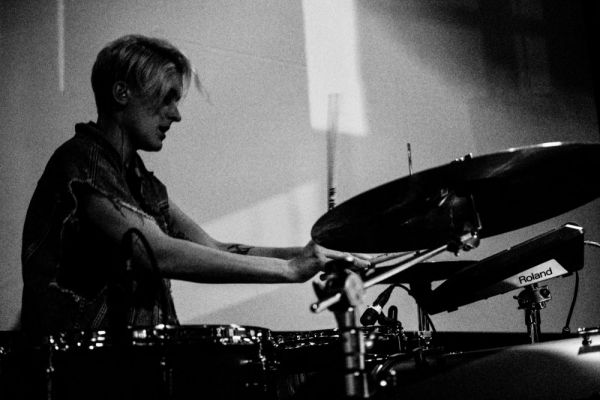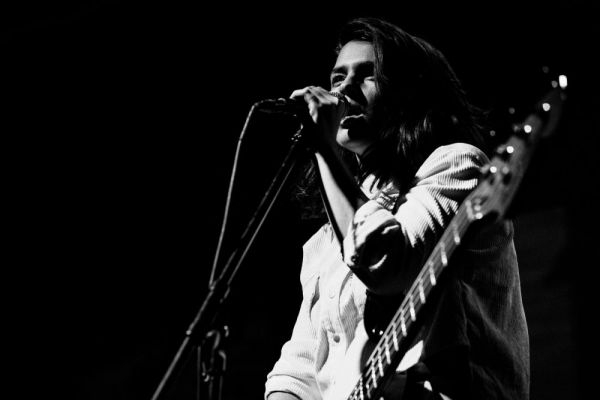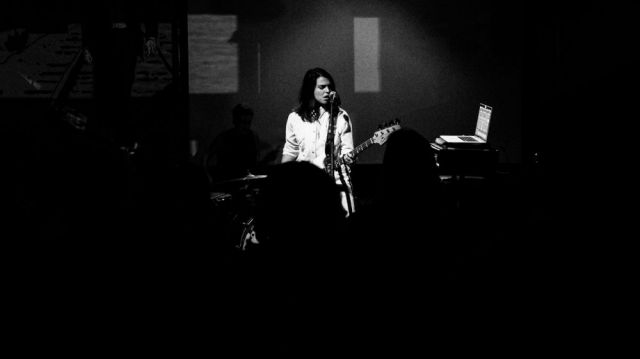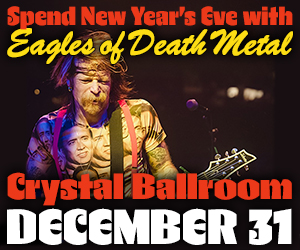Home > Rock
10/11/2018
Flint Eastwood with Somme at Bunk Bar, Portland on 10/06/18 Photos and review
Review by SARAH PAYNE Payne //
Photos by BENJAMIN MAH //
“I’m a queen not a soldier, relentless and chosen. I’m fighting a war tonight, because I’m the queen right here, here, here, here.” Flint Eastwood closed her set at Bunk Bar last weekend with her powerful “Queen,” dancing on stage in tandem with the crowd as they sang along and cheered.
Whenever I hear “Queen,” I can’t help but feel empowered. Strong. Fierce. I feel … well, truth be told, I feel like a goddamn queen. Since a friend turned me on to Flint Eastwood a couple of months ago, I’ve found myself repeatedly coming back to this song, playing it when I’m prepping for battle, playing it when I need a reminder to myself that I am my own boss, and even playing it when I just need that extra boost to the damn thing, whatever that may be. It’s become a sort of anthem, a reassurance that I am empowered to be in control of life.
Which, as it turns out, is kind of how Jax Anderson, the creative mind that is Flint Eastwood – meant it to be.
I had the opportunity to sit down with Anderson before the show, for what turned out to be a great conversation about vulnerability, being an artist, and being your own boss. I had read that “Queen” was written as a response to Anderson being asked about what it was like to be a woman in the music industry. From the get-go, Anderson established Flint Eastwood as her project, calling the shots from day one – which, she acknowledges, isn’t everyone’s experience, but has always been hers.
“I didn’t know that it was different until someone pointed it out to me. I’ve always felt very respected and always felt like I was the boss,” she said. “I know that’s not every woman’s experience, and I know that a lot of people have been shat on and a lot of people have been taken advantage of.
“I wanted to write ‘Queen’ as a response to the people who felt like they’ve been shat on, that you don’t have to be a soldier in what you do, you don’t have to take commands from other people. You can be the queen. You can be the master. And you should be the queen. You should be the master.”
It’s easy to picture Anderson as being a total BOSS. There’s a very self-assured way she sings and dances around the stage and interacts with the crowd that comes from a place not just of self-empowerment, but of wanting you to be empowered, too.
(Anderson mentioned that part of her pre-show ritual, before coordinating a dance circle to Beyonce with her DJ, producer and photographer, is to hype herself up in the mirror: “I’ll be like, ‘You’re the shit,’” she said. “And I’m like, ‘Sick. Thank you, self.’”)
“I want people to feel free,” she said. “My way of getting people to feel free is to kind of nudge them in a certain direction every once in a while.”
Throughout her set, Anderson would encourage the audience to really get into the music and the experience, having everyone in the crowd – even those sitting in the back – to get close, to raise their hands, to jump and dance and sing along.
“It’s definitely something that I think is very important, and I think it’s something that music specifically provides,” she said. “Just freedom. Just moving any way that you wish.”
It’s hard not to move when the energy of Flint Eastwood is so pervasive that it fills every corner of the room. Even the stereotypical hipster head nods progressed to the moving of shoulders and hips and feet. Each song packs an energetic punch, and delivered by Anderson – who is in constant movement herself – the energy is contagious. It is, as Anderson herself said, “Pop music that never sleeps.”
Flint Eastwood hails from Detroit, and is comprised mainly of Anderson, who writes, performs and manages the music (the name, she said, comes from her early spaghetti western-inspired music). The other component of the band is her brother, Seth Anderson (aka Syblyng), who aids in the production side of things.
Anderson is a fulltime artist and entrepreneur who runs her own 12-person company. (She’s not just a boss onstage, she’s one in real life, too.) She said she is always working on her art, whether it’s writing lyrics, listening to new music or experimenting and trying new things. Even during Flint Eastwood’s performance at Bunk Bar, Anderson had a screen set up behind her projecting images and videos that corresponded with what song she was singing – including a still with the message, “This is a coping mechanism for a broken heart,” which she teased to the audience as a clue to something she’ll be dropping later in October.
Like many – including the show’s opener, bassist and frontwoman Somme who uses her music as an outlet for dealing with a broken heart or venting about politics – Anderson uses art and music to help her make sense of life.
“When I sit down to write something, it’s usually me trying to process something. I try to be as genuine and honest about how I’m feeling,“ she said.
For example, “Monster,” which features on Broke Royalty and the Small Victories ep, is about getting through the aftermath of losing her mother.
“Monster specifically was written about my mom passing, and how after she passed I would spend a lot of time thinking about the what ifs and thinking about just how much I missed her, and it specifically would happen at night. That song is kind of my way of explaining to myself and encouraging myself, like, ‘yo, it’s going to be okay.’
“That’s a very important approach to have – at least for me personally – to approach things as how can I help myself and how can I help others with what I’m doing.”
Which is what Anderson was doing from the first moment she took the stage as Flint Eastwood: using her music to empower and free us, to help us make sense of our own lives, and to help us raise our hands in the air at the expensive of possibly looking silly but really just letting ourselves be totally, collectively vulnerable for that one moment.
“The need to be vulnerable is something that’s very important to me,” Anderson said. “And I think hopefully by me being vulnerable, it’s offering an avenue for others to be vulnerable as well.
“I think that’s one of the most important things that you can do as a human, is learn to love yourself enough to be vulnerable.”
http://www.flinteastwoodmusic.com
https://sommesongs.com



